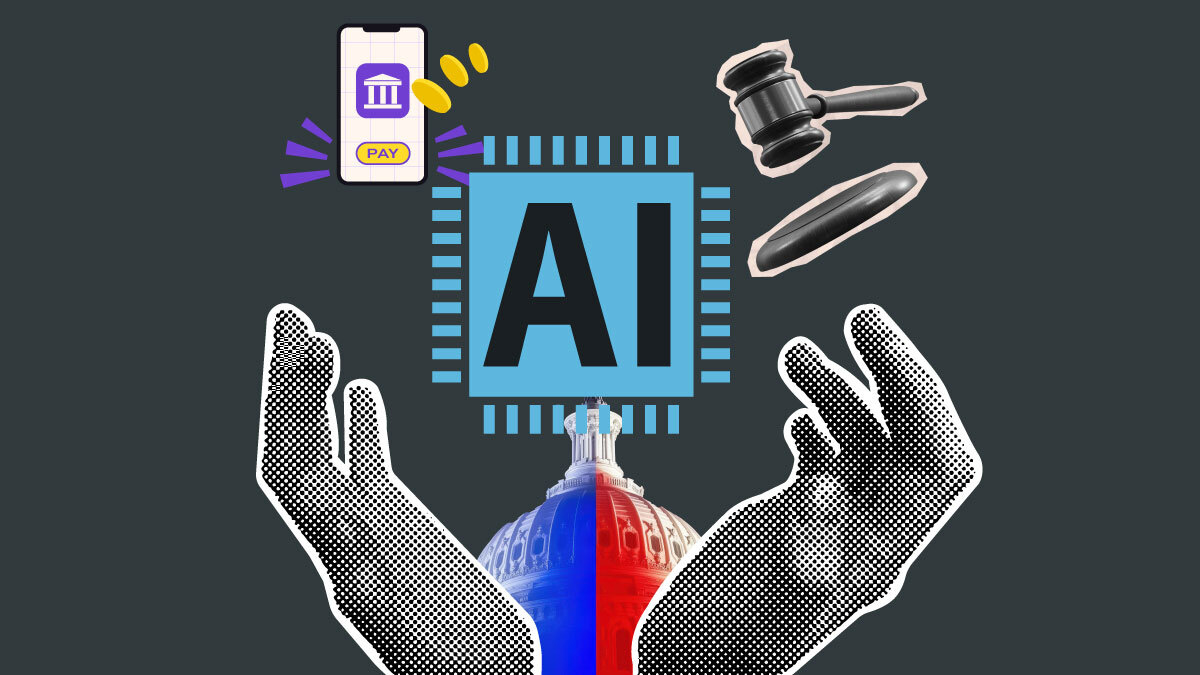Even in a divided Congress, there is bipartisan support for learning more about how artificial intelligence, and especially gen AI, is being leveraged in the housing and banking industries. Two bipartisan measures introduced this week would address concerns about how banks use AI in property valuations and underwriting, among other issues.
On Monday, representative and chair of the House Financial Services Committee, Patrick McHenry, a Republican from North Carolina, announced the introduction of a resolution, backed by Ranking Member Maxine Waters, a Democrat from California, to acknowledge the rising use of AI in financial services and the housing industry.
Then Waters, backed by McHenry, proposed a bill for financial regulatory agencies to study the benefits of the technology within the sector, “The AI Act of 2024.”
Per a release from the Committee, the proposed measures build upon the efforts of the Committee’s existing Bipartisan AI Working Group, which aims to pinpoint the benefits and risks of artificial intelligence technology, as well as the effect of existing laws and regulations on the adoption of AI.
“Artificial intelligence holds the promise to revolutionize our financial system,” McHenry said in a statement. “As firms increasingly leverage AI, lawmakers and regulators tasked with oversight of the financial services industry must constantly evaluate the risks and benefits this technology poses. These bills are a small, but critical, step forward to empower the financial system to realize the numerous benefits artificial intelligence can offer for consumers, firms, and regulators.”
Waters also commented on the proposals. “I am so proud to partner with Chair McHenry to introduce these two bipartisan bills, which continue the Committee’s leadership in examining and understanding the impact this technology has on people. Our Committee will continue to collaborate closely with the federal government to identify the risks and benefits of AI and to explore further legislation needed to protect people and our communities.”
A hearing for the two pieces of legislation did not indicate whether the bill or resolution would pass. A Democratic aide from Waters’ office said “It’s understood that those AI bills will be a next Congress thing given our short calendar for the remainder of the 118th.”
The aide added, “As AI advances, Ranking Member Waters and committee Democrats are paying close attention to what impact this technology is having on the housing sector…We know that AI is increasingly being used to make often black box decisions about who will or won’t have access to housing or how much they will pay. An inaccurate prediction, faulty data, or inflated pricing is quite literally determining access to housing—it’s the difference between having a roof over one’s head or not.
“So, while we want to modernize and innovate, we are first and foremost focused on making sure that this technology advances housing fairness and affordability, does not exacerbate the affordable housing and homelessness crisis, and importantly, does not repeat the mistakes of the past by amplifying systemic biases in violation of the Fair Housing Act.”
The aide continued, “At the same time, we do recognize and welcome the potential that AI has to improve housing access, reduce administrative costs, and speed up housing production. However, the reason Ranking Member Waters and Chair McHenry introduced their bipartisan AI bills in the first place is because there is still a lot left to learn. We need financial regulators to conduct their respective studies, evaluate how financial service entities are engaging with AI, and report back to Congress on their findings, so we have the information we need to carry out informed legislative action.”
Taylor Stork, president of the Community Home Lenders of America (CHLA), shared that the organization as a whole is “encouraged by the prospect that AI” can add to technological improvements in the housing and financial services realms. A statement from the organization shared that it backs H.R. 10262, calling the proposal an opportunity to “study the realized and potential benefits of artificial intelligence in these industries.”
“AI can serve to decrease the cost of homeownership or decrease the cost of manufacturing a mortgage, and effectively act to level the playing field so that competitors, large and small, have a higher level of parity, and that way we ensure competition in the marketplace,” Stork shared in an interview with HousingWire.
Stork said that he’s heard firsthand from a congressional staffer who openly admitted that congressional staffers themselves are using AI to develop a lot of the language going into the bills they’re creating. That in itself, Stork says, means people need to pay close attention to what’s happening, especially since the proposed pieces of legislation are promoting an exploratory angle toward AI.
“I think there’s gonna be a lot of fear about what it could replace until we start to see some of the new opportunities that result from having replaced some of the nonvaluable repetitive work tasks by automation so that our knowledge workers can focus their capabilities on a higher level of value and ultimately provide a greater value back to the industry,” Stork mused.
But Stork also says there’s an opportunity for positive impact beyond initial fear. “If you think about one of the biggest challenges for lenders over the last several years, we have watched the cost of manufacturing alone skyrocket…we’ve watched the cost of a mortgage go up higher and higher and higher, and the burden of managing that mortgage,” he said. “While certainly there are opportunities for artificial intelligence to be problematic in some areas, there are also opportunities for some of the administrative and more routine work and tasks to become less expensive and become more efficient.”

